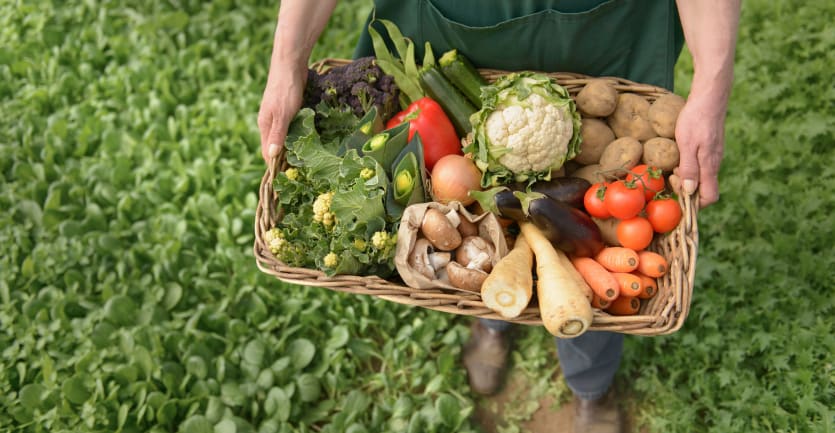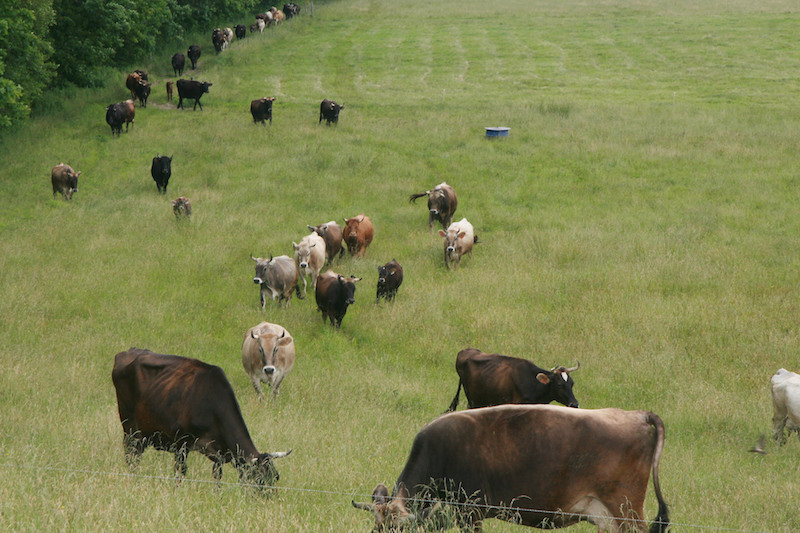Exploring Biodynamic Farming: Sustainable Agriculture with Cosmic Principles
In the quest for sustainability and harmony with nature, biodynamic farming has emerged as a fascinating approach that integrates cosmic principles with agricultural practices. This method goes beyond organic farming, embracing a holistic view that considers the farm as a living organism, where all elements are interconnected. If you’re intrigued by farming in sync with the rhythms of the cosmos, then biodynamic farming offers a rich and rewarding path to explore.
What is Biodynamic Farming?
At its core, biodynamic farming is a regenerative agricultural practice that emphasizes the interrelationship between soil, plants, animals, and cosmic forces. Founded by Austrian philosopher Rudolf Steiner in the early 20th century, this approach integrates spiritual, ethical, and ecological principles into farming. Steiner’s vision was to create a self-sustaining farm ecosystem that works in harmony with the natural world, ensuring the vitality of the soil and the health of the crops.
Unlike conventional farming, which often relies on synthetic inputs, biodynamic farming uses natural preparations made from herbs, minerals, and animal manure to enhance soil fertility and plant health. These preparations are applied in conjunction with lunar and astrological cycles, adding a cosmic dimension to the farming process.
The Cosmic Connection: Working with Lunar and Planetary Rhythms
One of the most distinctive aspects of biodynamic farming is its reliance on lunar and planetary rhythms to guide agricultural activities. Just as the moon influences tides and animal behaviour, biodynamic farmers believe it also affects plant growth, soil moisture, and the overall vitality of the farm.
For instance, the lunar calendar is used to determine the best times for planting, cultivating, and harvesting crops. Planting during a waxing moon is believed to enhance leaf growth and water absorption while harvesting during a waning moon is thought to improve crop preservation. Additionally, planetary influences are considered when making decisions about crop rotation, composting, and animal husbandry.
This cosmic approach may seem unconventional, but many biodynamic farmers swear by its effectiveness. By aligning their practices with the natural rhythms of the cosmos, they believe they can enhance the resilience and productivity of their farms, leading to healthier crops and a more balanced ecosystem.
Key Principles of Biodynamic Farming
1. Holistic Management of the Farm as a Living Organism
Biodynamic farming views the farm as a self-contained, self-sustaining organism. This means that all aspects of the farm—soil, plants, animals, and humans—are interconnected and must work together in harmony. Biodynamic farmers strive to create a closed-loop system, where inputs like seeds, manure, and compost are produced on the farm, minimizing the need for external resources.
2. Biodynamic Preparations
Central to biodynamic farming are the nine biodynamic preparations, which are used to enhance soil health, plant growth, and compost quality. These preparations include:
- Preparation 500 (Horn Manure): Made from cow manure that is buried in a cow horn over the winter and then sprayed on the fields to stimulate root growth and soil fertility.
- Preparation 501 (Horn Silica): Made from finely ground quartz that is buried in a cow horn over the summer and then sprayed on the crops to enhance photosynthesis and plant vitality.
- Compost Preparations: Made from herbs like yarrow, chamomile, and dandelion, these are added to compost to speed up decomposition and improve its quality.
Each preparation is applied at specific times according to the lunar and planetary cycles, adding a layer of cosmic wisdom to farming.
3. Biodiversity and Crop Rotation
Biodynamic farms are designed to support a diverse range of crops, animals, and wildlife. Biodiversity is seen as essential for maintaining the health and resilience of the farm ecosystem. Crop rotation is used to prevent soil depletion and reduce the risk of pests and diseases. By rotating crops and integrating livestock, biodynamic farmers create a balanced and thriving farm environment.
4. Animal Welfare and Integration
Animals play a vital role in biodynamic farming, providing manure for compost, controlling pests, and contributing to the overall vitality of the farm. Biodynamic farmers prioritize animal welfare, ensuring that animals are treated with respect and allowed to express their natural behaviours. The integration of animals into the farming system is seen as a way to enhance the farm’s self-sufficiency and harmony.
The Relevance of Biodynamic Farming in Today’s World
As concerns about climate change, soil degradation, and food security continue to grow, biodynamic farming offers a sustainable and regenerative alternative to conventional agriculture. By prioritizing soil health, biodiversity, and ecological balance, biodynamic farms can help mitigate environmental challenges while producing nutritious and flavorful food.
Moreover, the spiritual and cosmic elements of biodynamic farming resonate with those seeking a deeper connection to nature and the rhythms of the universe. In a world that often feels disconnected from the natural world, biodynamic farming offers a way to reestablish that bond, fostering a sense of stewardship and responsibility for the Earth.
Anecdotes from the Field: Success Stories in Biodynamic Farming
Across the globe, biodynamic farming has gained a dedicated following, with many farmers and gardeners experiencing remarkable results. For example, in the wine industry, biodynamic vineyards have earned a reputation for producing wines of exceptional quality and character. Winemakers in regions like Burgundy, Napa Valley, and Tuscany have embraced biodynamic principles, resulting in wines that reflect the unique terroir of their vineyards.
In Australia, the biodynamic farmer Peter Proctor is celebrated for his work in revitalizing degraded soils and transforming barren land into fertile, productive farms. His success has inspired many others to adopt biodynamic practices, demonstrating the potential of this approach to regenerate land and support thriving communities. Even in urban settings, biodynamic gardening is gaining popularity as people seek to grow their own food in harmony with nature. Community gardens and urban farms are incorporating biodynamic methods to enhance soil fertility and produce healthy, vibrant crops. These success stories highlight the versatility and effectiveness of biodynamic farming, regardless of scale or location.
Getting Started with Biodynamic Farming: Tips and Advice
If you’re curious about biodynamic farming and want to try it yourself, here are some tips to get you started:
1. Start Small:
Whether you have a large farm or a small garden, you can begin by incorporating biodynamic principles on a small scale. Experiment with biodynamic preparations, observe lunar cycles and focus on building soil health.
2. Educate Yourself:
There are many resources available to learn more about biodynamic farming, including books, online courses, and workshops. The Biodynamic Association is a great place to start, offering educational materials and connections to the biodynamic community.
3. Join a Community:
Biodynamic farming is a collaborative and community-oriented practice. Joining a local biodynamic group or attending a workshop can provide valuable support and inspiration as you embark on your journey.
4. Be Patient and Observant:
Biodynamic farming is a long-term commitment that requires patience and observation. Take the time to observe your farm or garden, notice how the plants and soil respond to different practices, and adjust your approach as needed.
Conclusion: Embracing the Cosmic Wisdom of Biodynamic Farming
Biodynamic farming is more than just a method of agriculture; it’s a philosophy that invites us to see the farm as a living organism, deeply connected to the rhythms of the cosmos. By embracing this holistic approach, we can cultivate not only healthy crops and fertile soil but also a deeper connection to the natural world.
As you explore the fascinating world of biodynamic farming, you may find yourself drawn to its spiritual and ecological principles, inspired by the success stories of those who have embraced this path. Whether you’re a seasoned farmer or a curious gardener, biodynamic farming offers a unique and rewarding way to engage with the Earth, harnessing the cosmic forces that shape our world. So why not take the first step and explore biodynamic farming for yourself? You might just discover a new way of farming that resonates with your values and connects you to the rhythms of the universe.





Comments
Post a Comment